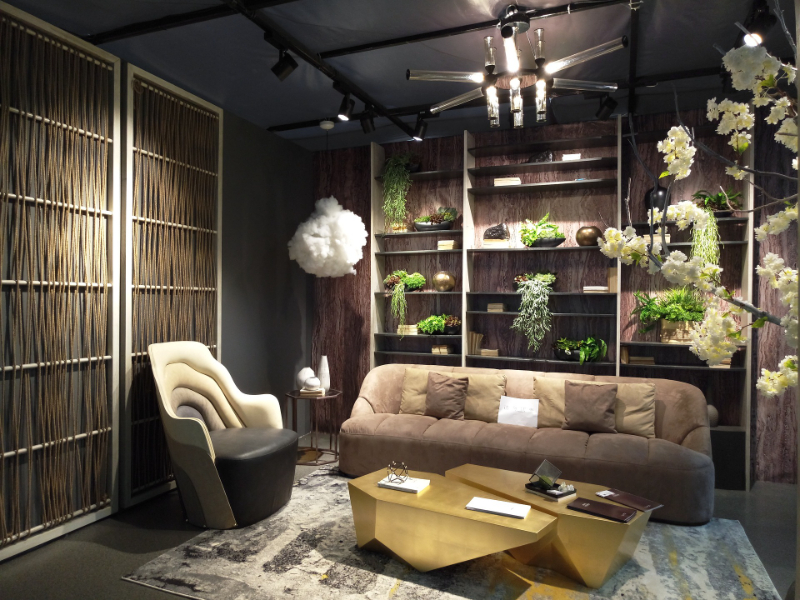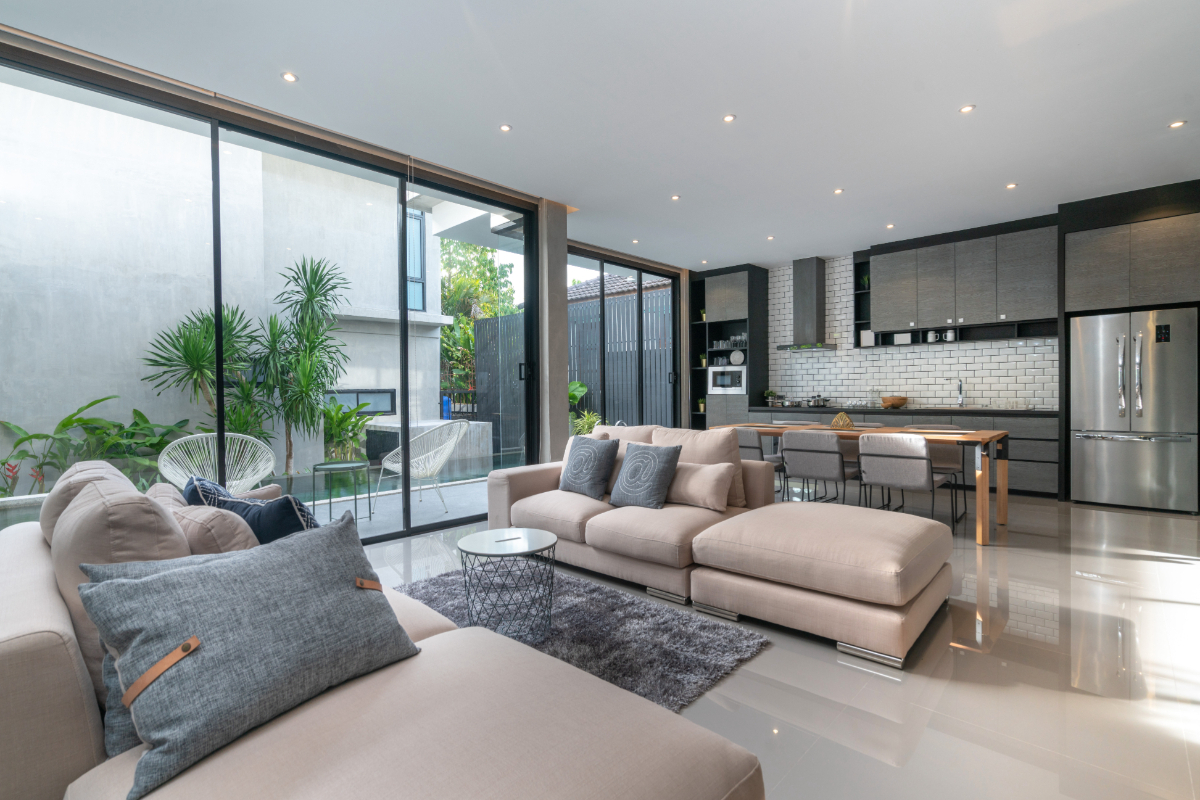What are the skills of an interior designer? Find out more about the creativity and design skills that an interior designer offers. We look at the ways an interior designer can help you.
What is an Interior Designer?
Interior designers work across a wide range of sectors to create useful and visually pleasant rooms for individuals and organisations.
When seeking a job in this area, having and acquiring the relevant skills, education, and experience might be useful; understanding how to get started as an interior designer might assist you in determining whether this is the proper career path for you.
An interior designer is an expert who creates and organises features of locations such as office buildings, health care facilities, and homes to fulfil the needs of a client.
They frequently work as part of a team to analyse project needs and assign tasks to accomplish the project on schedule while maintaining strong client relationships. To properly complete the assignment, their employment may need a number of extra skills and obligations, such as budgeting and project planning.
Interior Design Careers
Interior designers create useful, safe, and visually appealing interior environments by assessing space needs as well as furnishings, colours, lighting, and materials. They must be capable of drawing, reading, and editing plans. Interior designers must also be familiar with construction laws, inspection restrictions, and accessibility standards.
Essential Skills of an Interior Designer:
A crucial component of the work is being current with fashions and trends, as well as having an understanding of complementing colours. Additionally, you must be able to transform your artistic vision into a drawing that effectively communicates concepts to clients.
A similar experience can be obtained through internships or apprenticeships with other designers, while a design degree or other accreditation is useful. In any case, originality is essential.
First and foremost, you must be imaginative. You'll be asked to create places for a wide range of clientele. Although having a point of view might be useful, you must also be highly adaptive.
To create unified rooms, you'll need to pay attention to both the small details and the broad picture at the same time; while creativity is not the only need for this position, it is a must.
Trends come and go, and you must keep ahead of the game. The ability to recognise and forecast trends will help you stay relevant and in demand. Furthermore, being able to identify negative trends will ensure that your career remains relevant for many years to come.
Clients are increasingly requesting eco-friendly features. You'll need to be familiar with these desirable design aspects and technology, especially if you plan to stay in the area. Since clients will rely on you to make the best selections for them, this understanding is critical for overall happiness.
As an interior designer, you'll be required to properly explain your vision to your clients while also practising active listening. You'll also need to collaborate with contractors and other specialists who will be in charge of carrying out your plans.
To accomplish projects on schedule and within budget, an interior designer must be exceptionally organised. When work takes too long or costs exceed what was promised to a client, you're unlikely to get repeat business.
Designers must plan everything down to the minute and dollar. Although unforeseen delays and expenditures will surely occur, you must plan for these shocks ahead of time.
When working on an interior design project, you'll need to stay within a strict budget, which means you'll need to be acquainted with figures. You'll need to know how much each component of your plan will cost, from supplies and labour to the cost of any delays in the job. It is critical that you maintain track of all costs and timings, as well as receipts and invoices, in order to appropriately bill your clients.
You must also be confident when negotiating with suppliers in order to get a better deal. Furthermore, knowing which supplies and materials are in high demand allows you to buy them in bulk where possible to save money and time. Strong financial skills are necessary, especially because many clients may want to have as much done as possible for as little money as possible.
Success in this field typically needs both financial resourcefulness and design expertise. Working efficiently with vendors is essential, in addition to being numerate. For example, if a particular fabric or colour is currently popular, you can likely buy a greater quantity at a lower price and be confident that you'll be able to use it all.
You must be able to sketch in order to express your thoughts and design concepts with clients. To quickly show your ideas, you might create brief hand-drawn drawings in the early phases. However, you must also be able to utilise computer-aided design (CAD) software to create visual representations of what you want to accomplish with a space.
If you've ever considered becoming an interior designer, you might envisage doing everything by hand. The majority of interior designers currently utilise computer-based design tools to generate visual representations of their work; but, the ability to create preliminary sketches is equally helpful. Knowing how to employ both tactics will increase your value to your clients. Due to the popularity of several home design TV shows, clients like to see 2D and 3D representations of concepts in real life.
Skills of an Interior Designer
Cosmetic adjustments that may or may not be part of a larger makeover are often handled by interior designers. An interior designer, for example, picks paint colours for the walls, furniture designs, and colour coordination for drapes, curtains, and accent pieces rather than installing new granite worktops or pulling down walls.
If the project includes further construction or major modifications, the designer may additionally collaborate with the contractor. Interior design, in general, is more thorough than interior decoration.
While design includes decoration, interior decorators have significant limits in advising customers on the overall design. Interior designers assist customers with large aesthetic modifications, including those that need contractor labour.
Depending on the designer's expertise and credentials, some interior designers collaborate with architecture firms.

You will meet with clients to discuss their ideas as a designer, so you must be able to communicate effectively and listen attentively. Along with working well with clients, you must be able to communicate with contractors who may be overseeing the larger project and vendors who may be supplying artwork, furniture, and other items.
A skilled interior designer must have the ability to visualise potential spaces. imagining what would fit in the space after seeing an empty room or vacant office, or imagining something entirely different after looking at a filled environment. This requires the ability to see possibilities in natural lighting, wall and ceiling angles, and other elements, as opposed to staring at a blank canvas.
Projects seldom go as planned, therefore you will frequently need to find solutions to issues. Unexpected costs might result from unforeseen delays; if a client's desired piece of furniture, artwork or other item becomes unexpectedly unavailable or if renovation plans change for a variety of reasons, interior design changes may be required. Additionally, customers may turn out to be capricious, changing their views and needing you to change on the go.
Hull Interior Designer Services
Do you require interior design services for Hull and East Yorkshire? Contact us today to start the journey to your perfect interior designed by us.

